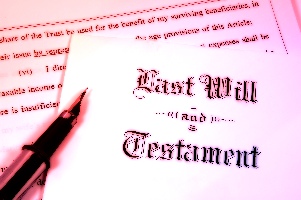 Real Estate agents! We have a love – hate relationship with them. The really good agents are able to sell our homes for the price we expect or find us the house of our dreams. The not so good agents list our homes for sale and let other agents do all of the work of selling our house. They still collect half of the commission. Agents that we hire to find us a home, show us homes we do not want or cannot afford. Why are they wasting our time? Do any of these statements ring a bell with you? If yes, then you have had some good experiences as well as some bad experiences throughout your life with Real Estate agents.
Real Estate agents! We have a love – hate relationship with them. The really good agents are able to sell our homes for the price we expect or find us the house of our dreams. The not so good agents list our homes for sale and let other agents do all of the work of selling our house. They still collect half of the commission. Agents that we hire to find us a home, show us homes we do not want or cannot afford. Why are they wasting our time? Do any of these statements ring a bell with you? If yes, then you have had some good experiences as well as some bad experiences throughout your life with Real Estate agents.
Real Estate Agents Commissions
Real Estate agents all charge a commission. Typically it is around 6%, with 3% going to the listing agent and 3% going to the selling agent. These 3% splits are further broken down to a split between the agent and their office that they work out of. The split depends on the agents deal with the office and how many sales he or she brings in every year.
Listing Your Home with Real Estate Agents
The agent you hire is supposed to be working for you to help sell your home. He or she does not get paid unless your home sells. The bad agents are going to urge you to list your home for a low price so that it sells quickly and they collect their commission. The really good agents, who will be around for a long time and have excellent reviews will work with you to find the right price and will be able to demonstrate to you why the price they recommend is the right price based on previous listings in your area and the current market.
It pays to shop around. Don’t be intimidated. Ask for references and check out the references. Ask detailed questions. Find out exactly what they will do for you and how will they market your home. Ask for at least three quotes before you make a decision.
This may seem like a lot of work, however it might mean the difference of several thousand dollars in your pocket and a house that sells in a reasonable time to the right buyer.
Using Real Estate Agents to Find you a Home
With today’s online services, MLS, Grapevine and private sales, there is a huge opportunity for an individual to gather all of the information he or she needs to find the home of their dreams. Your Real Estate agent can help you with this search, identifying homes that are not yet on MLS which may meet your requirements. They can also arrange for viewings of homes that have been listed by them or other agents. This is an invaluable service, but there is a lot more.
If this your first home, you may need more help than you realize. If you have a good agent , he or she will coach you through the offer process. You may save several thousand dollars by making an offer that is reasonable, but below that of the advertised sale price. But more important , are the conditions that everyone should consider.
Adding in conditions which protects you the buyer and allows you to check for various things before you firm up the deal and become committed to buying a home you may not want. This is one of the most important aspects of an agents job and it may save you thousands of dollars.
Some Conditions to Consider
Financing – Allows you to firm up financing before you are committed
Conditional Sale – Allows you to sell another home before you are committed and avoids the buyer from owning two homes at the same time
Inspection – Conditional until a home inspector has completed his review and prepared a report for you.
Repairs – specific repairs that may need to be completed prior to final sale
Specific Items – to be included in the sale of the home. A list may be included.
Vacancy – if the home is rented, specifies that the tenant must vacate the home by a specific date.
Condo Report – specifies that the buyer can review the condo documents
Any or all of these conditions may be applied to any offer to purchase. They are designed to protect you the buyer and avoid getting into deals that you really want to avoid. This is not a complete list. There may be other items that are specific to each deal that is put together for you by your Real Estate agent.
Cost of Selling Your Home
If your Real Estate agent has a 6% commission rate and your home is worth $300k, then the commission will be $18,ooo dollars. This is a lot of money and you will want to make sure you get your money’s worth. Legal fee’s will vary. But should be under $1000 and incidentals should also be under $300 and these are high numbers.
Your moving costs will be higher depending on how much you have to move and were you are moving to. Hiring a moving company will be far the largest expense.
Grapevine is another approach to use. Essentially they will take pictures and list your home for sale on their network over the internet. Costs vary, but generally are under $1000 for the service. Customers of Grapevine are prepared to sell their own home and show their home to prospective clients. Not everyone is comfortable doing this and some people are just not good at it. Make your decision carefully before you leap into selling you own home yourself. Some people would rather let the Real Estate agent do the leg work and the commission is more than worth it to them.







